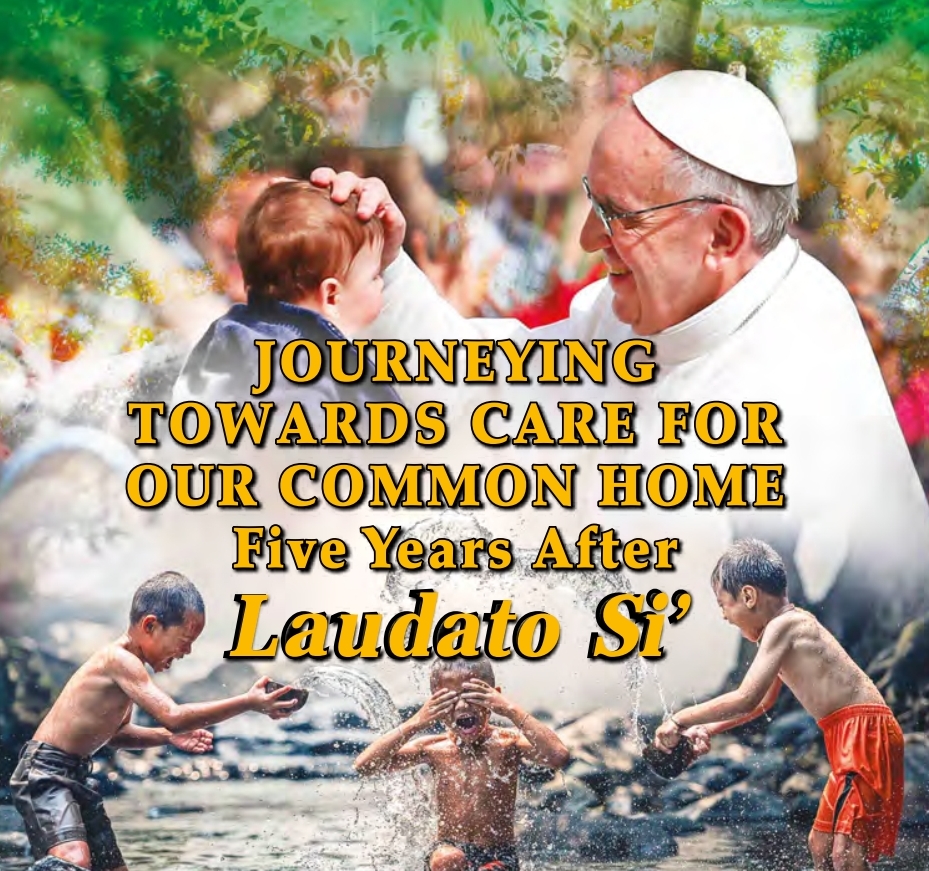
03 Oct SPIRITUAL CONVERSION, EDUCATION AND INTEGRAL HUMAN DEVELOPMENT
Today we present a practical Guide to continue encouraging our commitment to integral ecological conversion.
In 2015 at the time of the publication of the encyclical Laudato Si, the Interdicasterial Working Group of the Holy See on Integral Ecology was created with the purpose of analyzing ways to promote and implement integral ecology.
On the fifth anniversary of the encyclical, this group has presented “Journeying towards the care of our common home” which is already available in different languages, and which we offer to you to download: Spanish, English, French or Italian.
It says in the introduction:
The world has been shaken by the crisis caused by the Covid-19 pandemic, a virus that has taken tens of thousands of victims and is changing our lifestyle by endangering the economic systems of our society. The health emergency, and the loneliness and isolation resulting from the measures adopted to prevent the spread of this infection, have suddenly led us all to realize how fragile we are as human creatures and to discover or rediscover what is really essential in our lives. Pope Francis, during the extraordinary prayer service held in Saint Peter’s Square on 27 March 2020 to implore the end of the pandemic, urged us “to seize this time of trial as a time of choosing. It is not the time of your judgement [Lord], but of our judgement: a time to choose what matters and what passes away, a time to separate what is necessary from what is not. It is a time to get our lives back on track with regard to you, Lord, and to others. We can look to so many exemplary companions for the journey, who, even though fearful, have reacted by giving their lives.”
The crisis we are experiencing shows the undeniable importance, some five years after its publication, of the Encyclical Letter Laudato Si’ (LS), which Pope Francis wrote on care for our common home, teaching us how everything is connected. In this context, the so-called ecological crisis becomes a propitious moment for conversion and for concrete decisions that can no longer be postponed. It summons us to an interdisciplinary and operational dialogue at every level, from the local to the international. It calls for an educational process aimed at an integral formation of conscience.
By proposing an integral ecology, the Pope wishes to point to a new vision of the world. In this regard, constant efforts are needed for the dissemination, the detailed study and the implementation of Laudato Si’. Hence the idea of the current volume, which looks to present reflections on some operational proposals of the Encyclical through an action-oriented text addressed to the local Churches, to their communities, to political leaders and to all people of good will.
The purpose of this new document is to offer Catholics (and others) an orientation for concrete action in secular life, while at the same time challenging all Christians to examine their usual behavior and to recognize that “a healthy relationship with creation is one dimension of overall personal conversion” (LS 218) and indeed of ecclesial conversion. The starting point is found in what Pope Francis indicates as the recurring themes of the Encyclical Letter: “the intimate relationship between the poor and the fragility of the planet, the conviction that everything in the world is connected, the critique of new paradigms and forms of power derived from technology, the call to seek other ways of understanding the economy and progress, the value proper to each creature, the human meaning of ecology, the need for forthright and honest debate, the serious responsibility of international and local policy, the throwaway culture and the proposal of a new lifestyle” (LS 16). On the basis of these recurring themes, an effort has been made to identify and to propose some lines of action, always bearing in mind that the concrete contribution the Church can offer is educational, pastoral and cultural rather than technical and scientific.
These operational proposals are divided into two parts. The first relates to spiritual conversion and education, while the second concerns the promotion of integral human development from the standpoint of integral ecology. Each part focuses on twelve areas of interest, all treated in the same way: first, a quote from Laudato Si’ relevant to the subject, then an introduction, contextualization and reference to the more pertinent papal documents. The text then proposes some good practices and, to conclude, some lines of action.

